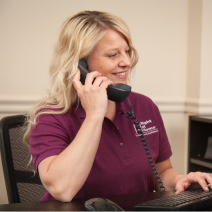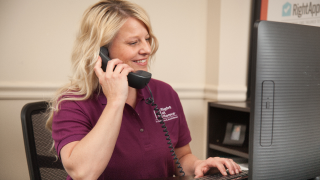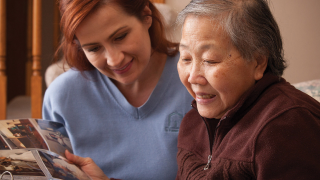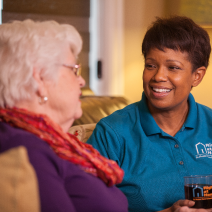

Paying for Home Care Options | Right at Home
How do I pay for home care?
Right at Home knows that paying for home care services is one of the most challenging issues for caregivers because most elders and families pay for services out-of-pocket. This can be quite a stress for many people caring for an aging adult, yet home care services may be the best way to keep an elder out of a nursing home and to raise their quality of life.
Here are some creative alternative ways that people pay for Home Care and keep their loved ones in their homes:
Long Term Care Insurance
We will even work with you to submit the paperwork! Some Long Term Care insurance plans provide coverage for home health care, so be sure to check benefits statements and policies carefully. You may want to contact the insurance providers to clarify what is covered by the elder's plan. The provider may require the elder's written or verbal permission in order for you to be able to discuss his or her insurance, so be sure to find out from the provider what is required, so you can gather the necessary materials. Right at Home Cleveland works with most long-term care insurance companies, so be sure to find out if your loved one has a policy. We can also work with you to make the billing process less stressful for you.
Veterans Administration
Shalom Plotkin, Owner of Right at Home is a Veteran and is proud to say that the agency is approved by the Department of Veteran Affairs to provide Home Care to eligible Vets. He is also a volunteer chaplain at the local Louis Stokes VA Hospital in Wade Park in Cleveland. The Veterans Administration offers the Aid and Attendance Benefit that can reimburse veterans for home care based on certain qualification criteria. To learn more about these programs, please visit the Veterans Administration website.
Life Insurance Policy Can Pay for Home Care
For millions of seniors with a life insurance policy they now have an option available to convert a portion of the death benefit to help cover the cost of home care. Not to be confused with long-term care insurance, an annuity, or a policy loan; the Long Term Care Benefit is unique because there are no wait periods to qualify, no limitations, no cost to apply, and no premium payments. Instead of lapsing or surrendering a life insurance policy, the death benefit is converted into a "living benefit" in the form of an irrevocable, FIDC insured account that makes monthly payments automatically to the account holder's choice of care provider. Sometimes compared to a reverse mortgage for a life insurance policy; the account is tax advantaged and a Medicaid qualified spend-down.
The Long Term Care Benefit is flexible and can be adjusted to meet changes in long term care needs. It provides funeral expense benefit and any remaining account balance is paid to the family. After years of premium payments, many policy owners will allow a policy to lapse or surrender it for any remaining cash value. This is a big mistake when the same policy could be used to pay for the cost of long term care.
For more information call (216) 752-2222or submit a request for more info.
Employer-sponsored Health Savings Account (HSA) or Flexible Spending Account (FSA)
Many employers will offer a HSA or an FSA in their benefits plans. This money is put into an account pre-taxed. You may be able to use money in these accounts to pay for Home Care services. Check with your employer.
Family trust funds
Reverse mortgages
If your loved one has equity in their home, they can probably qualify for a reverse mortgage. A reverse mortgage is a loan against your home that you do not have to pay back for as long as you live there. With a reverse mortgage, you can turn the value of your home into cash without having to move or to repay the loan each month. These funds can then be used to pay for home care services.









